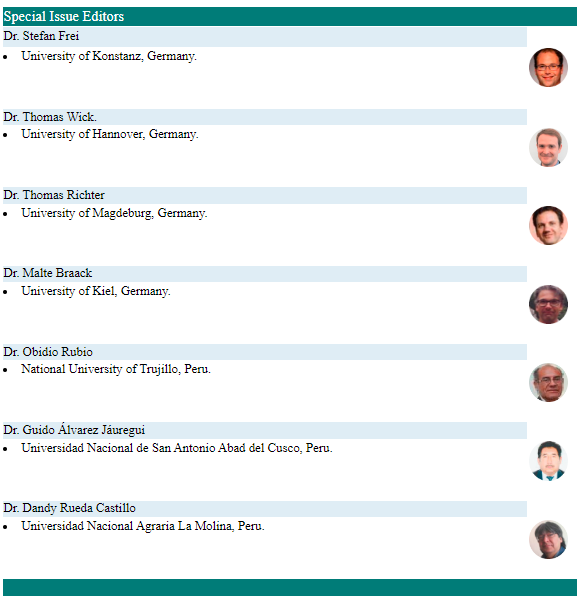A generalizations of the ternary Cantor set
DOI:
https://doi.org/10.17268/sel.mat.2020.02.04Keywords:
Cantor set, ternary Cantor set, beta-expantionAbstract
In this work, we show a generalization to the ternary Cantor set based on the beta-expantion of a number, futhermore, we present that, under appropriate hypotheses, this extension also corresponds to a constructive way of the definition of the ternary Cantor set . Finally, we prove that these sets that are, in effect, Cantor sets.
References
Cantor G. Sur divers théoremes de la théorie des ensembles de points situes dans un espace continua N dimensions. Acta Math Djursholm. 1883; 2:409–414.
Bresoud D. A Radical Approach to Lebesgue’s Theory. New York: Cambridge University Press; 2008.
Dasgupta A. Set Theory with an Introduction to Real Point Sets. New York: Springer; 2013.
Rényi A. Representations for real numbers and their ergodic properties. Acta Math Acad Sci H. 1957; 8(3):477–493.
Cantor G. De la puissance des ensembles parfaits de points. Acta Math Djursholm. 1884; 4(1):381–392.
de Vries M, Komornik V. Unique expansions of real numbers. Adv Math. 2009; 221:390–427.
Vallin R. The Elements of Cantor Sets: With Applications. New Jersey: John Wiley and Sons; 2013.
Downloads
Published
How to Cite
Issue
Section
License
The authors who publish in this journal accept the following conditions:
1. The authors retain the copyright and assign to the journal the right of the first publication, with the work registered with the Creative Commons Attribution License,Atribución 4.0 Internacional (CC BY 4.0) which allows third parties to use what is published whenever they mention the authorship of the work And to the first publication in this magazine.
2. Authors may make other independent and additional contractual arrangements for non-exclusive distribution of the version of the article published in this journal (eg, include it in an institutional repository or publish it in a book) provided they clearly state that The paper was first published in this journal.
3. Authors are encouraged to publish their work on the Internet (for example, on institutional or personal pages) before and during the review and publication process, as it can lead to productive exchanges and to a greater and more rapid dissemination Of the published work.












